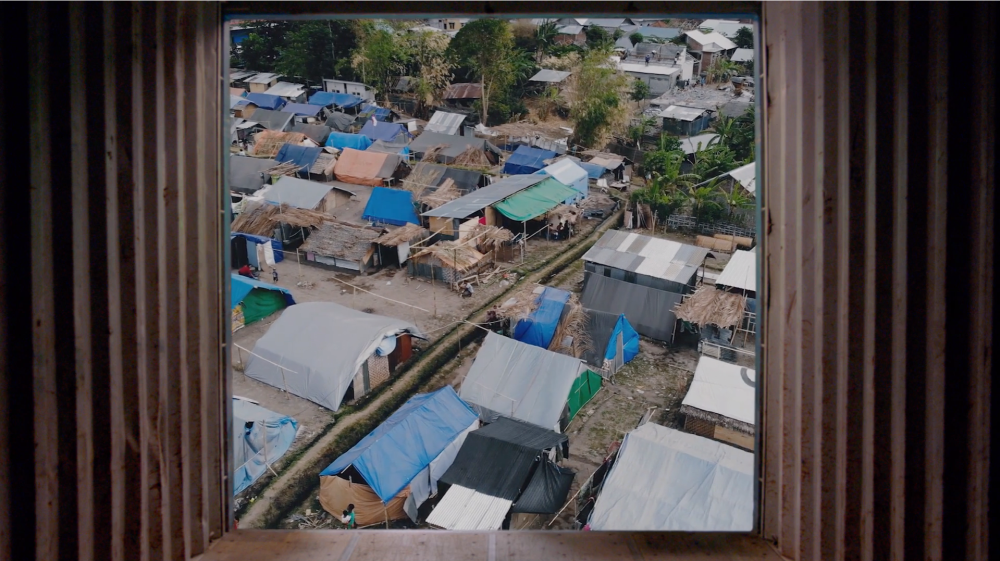
19.07.2019
Let’s Send Help: Fixing Shipping and Logistics for Humanitarian Aid
Let’s Send Help: Fixing Shipping and Logistics for Humanitarian Aid
Delivering humanitarian aid from Point A to Point B isn’t as easy as, well, getting from Point A to Point B. Far from it. Simply put, the model for shipping aid is broken.
Moving a single pallet of aid materials, from food and medicine to clothing and blankets, is a profoundly complex process that can involve working with up to eighteen different transportation companies – and it’s mostly handled through a myriad of emails, spreadsheets, phone calls, or even paper documents. Think of it as a relay race, but run in the dark, often by professionals who are extremely time and resource constrained. And we’ve got to come together to help them.
See how the model for shipping aid is broken – and how you can join Flexport.org in fixing it.
The impact of inefficiency
Visibility and communications are incredible barriers for nonprofits, NGOs, and other aid organizations. There’s not enough transparency and accuracy in terms of what’s needed, where it’s needed, and how best to get it there.
It’s estimated that 60% of donated items arriving at disaster sites cannot be used immediately, and often have to be destroyed or sent back. Too often, product donations are sent with the best intentions, but without confirming that the goods can actually be received. For example, sending beds when an area is still two feet underwater becomes a significant burden, especially if sufficient warehousing isn’t available.
What’s more, according to the Center for Disaster Philanthropy, almost all giving is done right after a sudden disaster, but stops after 5-6 months. This stops well short of areas in overwhelming need of long-term recovery and rebuilding, as we’ve seen in Houston after Hurricane Harvey, and Puerto Rico after Maria.
That level of inefficiency is heartbreaking for many reasons. Most importantly, it’s impeding people in need from receiving critical care. At the same time, it’s hurting the ongoing effectiveness of aid organizations who, on average, spend sixty to eighty percent of their budgets on supply chain related activities.
Fixing it together
The frequency of natural disasters is expected to increase by 5X over the next 50 years due to the impacts of climate change. We know that disasters disrupt supply chains – but what keeps us up at night are the communities in need. That’s why the time is now to bring the logistics industry, aid organizations, businesses, and individuals capable of helping together to fix this broken system.
Flexport.org was created to help our clients, NGOs and nonprofits, and donor organizations move their missions forward in terms of delivering humanitarian aid, increasing environmental sustainability, and demonstrating social responsibility. We’re doing so by:
Offering discounted international freight services and pro bono supply chain advice;
Activating our client community to match goods with the people and causes who need them;
And, through our partner Carbonfund.org, a leading 501(c)(3) nonprofit climate solutions provider, enabling customers to offset up to 100% of their shipping-related carbon emissions.
What’s more, we’re proud to be the first freight forwarder to deliver 100% carbon neutral aid shipments, leading the new way forward in partnering with both our international communities and our planet.
Through more than a year in operation, Flexport.org has worked with hundreds of nonprofits and corporate partners, including MedShare, Americares, Airlink, Bridges to Prosperity, Good360, and customers Bombas and ThirdLove, just to name a few. And we’ve facilitated urgent aid shipments for disasters/aid responses, including the historic flooding in Kerala, India, all of the California wildfires and several major U.S. hurricanes (including product donations from Flexport clients), and the ongoing humanitarian crisis in South Sudan – helping ensure the right materials arrive in the right places at the right times to be used effectively.
As a result, last year we helped unlock 20-25% in shipping savings* for nonprofits and prevented 3.9M pounds of landfill waste** through almost 500 Flexport.org shipments.
But we can’t do this alone. We need individuals and organizations to join us by donating excess products, funding humanitarian aid shipments, and shipping carbon neutral aid to those in need, from disaster relief to ongoing humanitarian efforts.
Shipping aid is broken. Together, we can fix it.
If you or your company would like to support any of our current disaster relief and humanitarian aid efforts with product donations, please visit www.flexport.org
*Evaluated metric: transportation costs as a % of supply chain budget. Source for aid industry average: ACF (2017). Flexport data reflects the period Jan 1 - Dec 31, 2018.
**Flexport data, January 1 - December 31, 2018.





